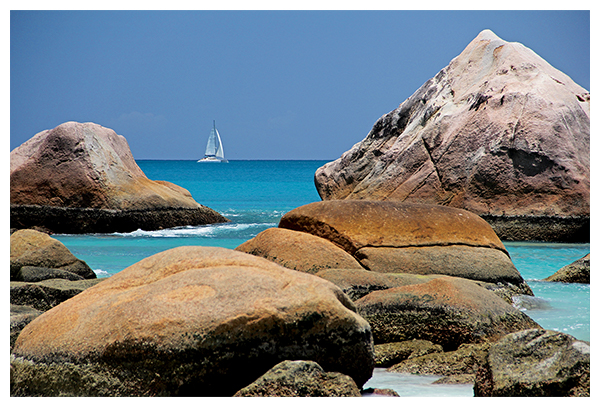Since St Kitts introduced an immigrant investment incentive programme in 1984, several Caribbean islands have followed suit.
We find out more about current Caribbean Citizenship by Investment programmes
Hurricane Irma, one of the strongest Atlantic storms in history, caused massive destruction in the Caribbean when it struck in late August through to mid-September last year. In a bid to support recovery efforts, Caribbean governments are raising funds through the latest Citizenship by Investment programmes. St Kitts and Nevis is operating a new programme whereby, from September 23rd, 2017 to March 31st this year, investors will be able to attain citizenship by donating $150,000 to the Hurricane Relief Fund.
Real estate expert Yulia Kozhevnikova of Tranio says, “St Kitts and Nevis and its neighbours Antigua and Barbuda, Grenada, Dominica and St Lucia offer citizenship for various forms of economic investment – in property, business, bonds or public funds. Obtaining citizenship under these programmes takes only three months on average.
“Caribbean Citizenship by Investment programmes share a number of common advantages. These include visa-free entry to many countries, including Western and Eastern Europe, the UK and Ireland; no permanent residence requirements and permission for dual citizenship. Other benefits are eligibility of the main applicant’s spouse, children and parents for nationality, tax allowances and convenient business terms.”
Tranio advises that the requirements and costs for Caribbean Citizenship by Investment programmes vary per country as follows:
Caribbean Citizenship by Investment programmes share a number of common advantages.
Antigua
$150,000 in the National Development Fund (NDF). This is the most popular route to citizenship. According to official statistics, in H1 2016, 80% of citizenship-by-investment applicants took part in this programme. For a family of five, the minimum investment is $150,000.
$400,000 in a real estate project approved by the government. Applicants need to own the property for a minimum of five years to retain Antiguan nationality.
$1.5 million in a business project approved by the government. There is also an opportunity for collective investments from $5 million, provided that each investor participates with at least $400,000.
There are fees associated with each programme – $25,000 when investing in the NDF and $50,000 when investing in businesses or real estate. Another $15,000 has to be paid for the fifth and each subsequent family member. Investors must visit the country to apply for citizenship.
Grenada
$200,000 in the National Transformation Fund supporting Grenadian economic development projects, such as tourism, agriculture and alternative energy.
$350,000 in development projects approved by the government – typically the construction of hotels, villas and holiday residential property. Applicants need to own the property for a minimum of three years to retain nationality.
Additional expenses include due diligence and application fees, totalling $8,000. Buyers must pay a $50,000 stamp duty for property purchases.
 Dominica
Dominica
$100,000 in a public fund that finances the construction and renovation of schools, sporting facilities, and hospitals. The amount increases to $175,000 for the main applicant and his/her spouse and to $200,000 for a family of four.
$200,000 in a property on a list of projects approved by the Dominican government.
Stamp duty for property investors is $25,000. To secure citizenship for family members, investors must pay larger stamp duty fees, ranging from $35,000 to $70,000, depending on the size of the family. There are additional expenses for due diligence and application fees amounting to $9,950 (plus $5,000 per family member).
St Kitts and Nevis
$250,000 in the Sugar Industry Diversification Fund (SIDF). This amount increases to $300,000 for a family of four.
$400,000 in a real estate project approved by the government (hotel, villa or condominium construction). The property can be sold after five years of ownership.
$150,000 in the Hurricane Relief Fund.
Additional due diligence fees and other expenses amount to $7,500 for the main applicant and $4,000 per family member over 16. There is a stamp duty of $50,000 for the main applicant and $25,000 for his/her spouse and children under 18.
 St Lucia
St Lucia
$100,000 in the national economic fund for financing government projects. The amount increases to $165,000 for the main applicant and his/her spouse and $190,000 for a family of four. Another $25,000 has to be paid for each additional family member.
$300,000 in real estate for the construction of premium hotels and resorts, as well as high-end boutiques approved by the government.
$500,000 in public bonds. The amount increases to $550,000 for a family of four.
$3.5 million in a business project approved by the government and contributing to the prosperity of St. Lucia. There is also an opportunity for collective investments from $6 million, provided that every investor participates with at least $1 million.
Investors also pay for due diligence ($7,500 for the main applicant and $5,000 per family member) and are charged an application fee ($2,000 for the main applicant and $1,000 per family member). Property, bond and business investments require an extra $50,000 fee for the main applicant and $25,000 per family member under 18.
Michael Green, sales director at The Landings in St Lucia comments, “Applicants are required to verify that they are at least 18 years of age, of good character with no criminal record and in good health. Due diligence checks and a banker’s reference are also required. Applicants may apply with their spouse and dependent children, and, in some cases, dependent elderly parents. The duration of the application varies but can take between three to six months.”


